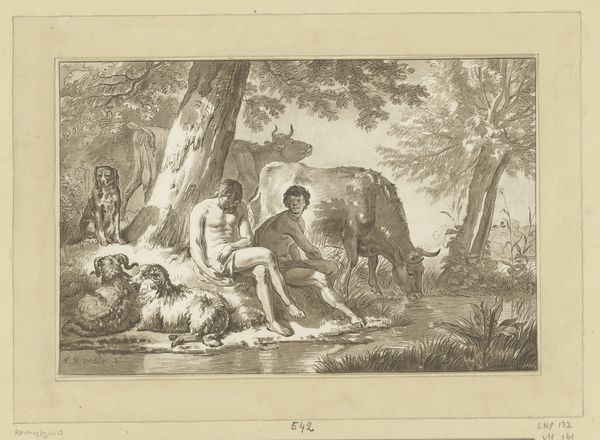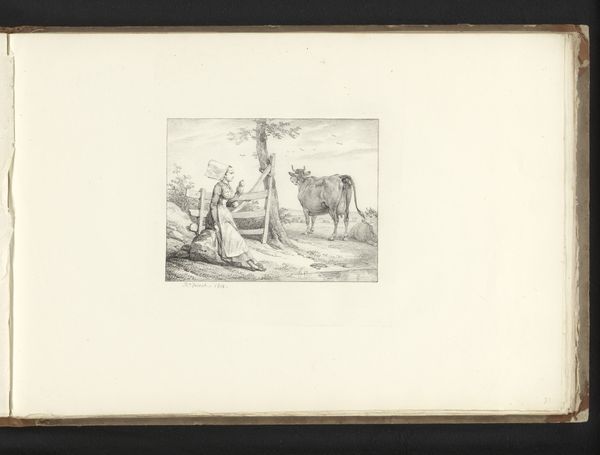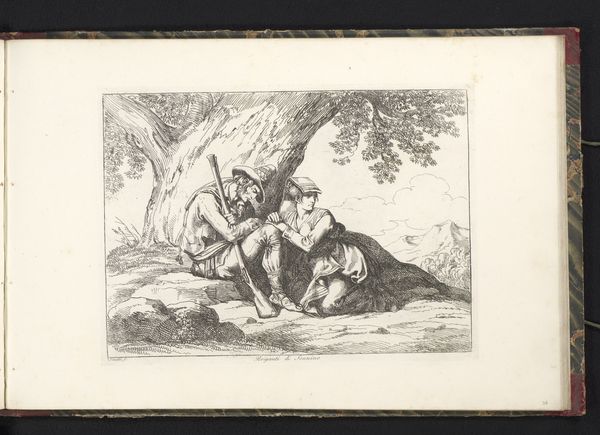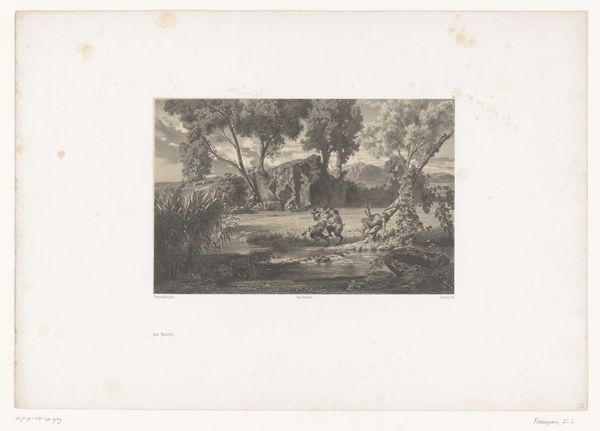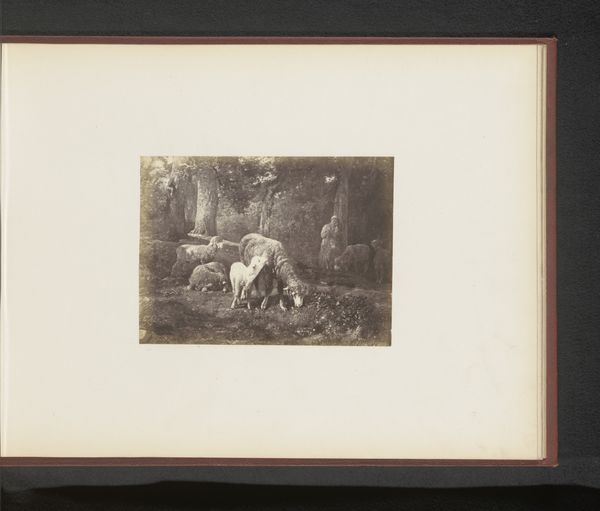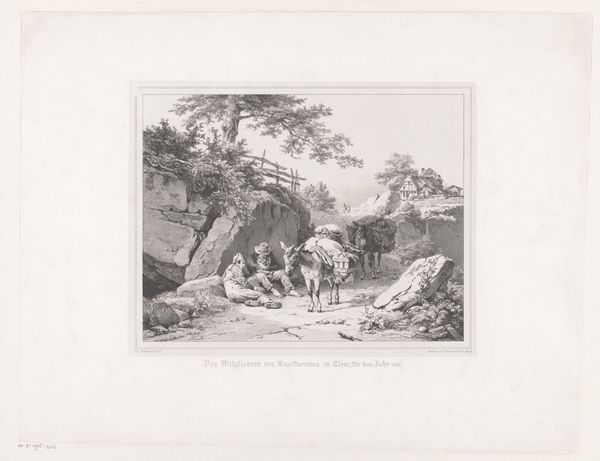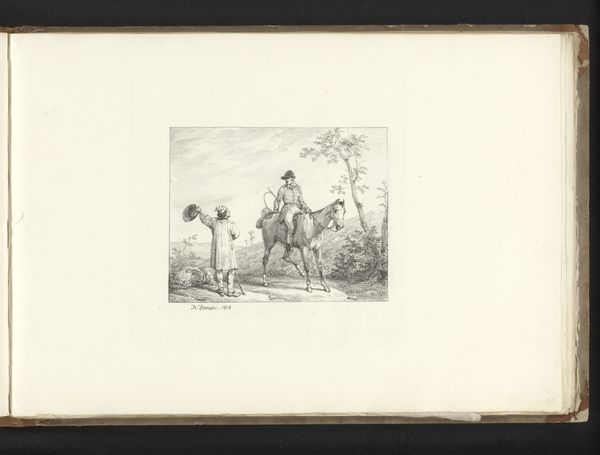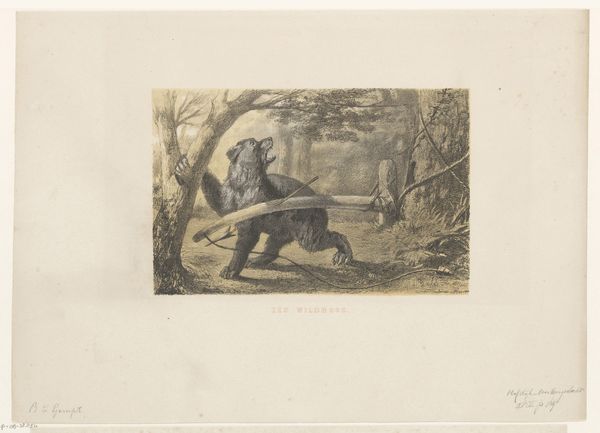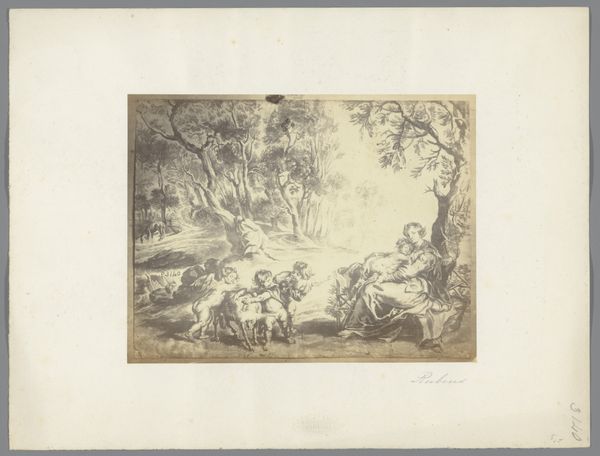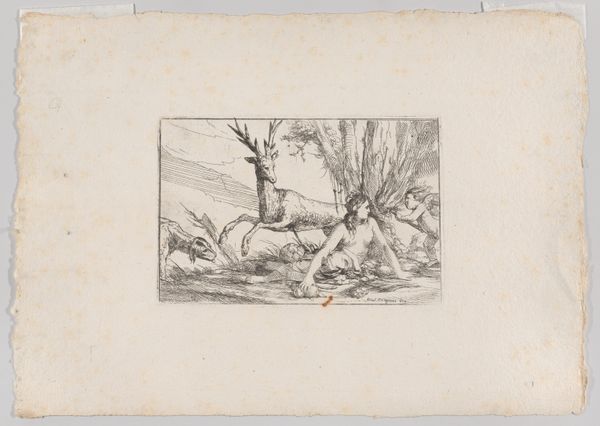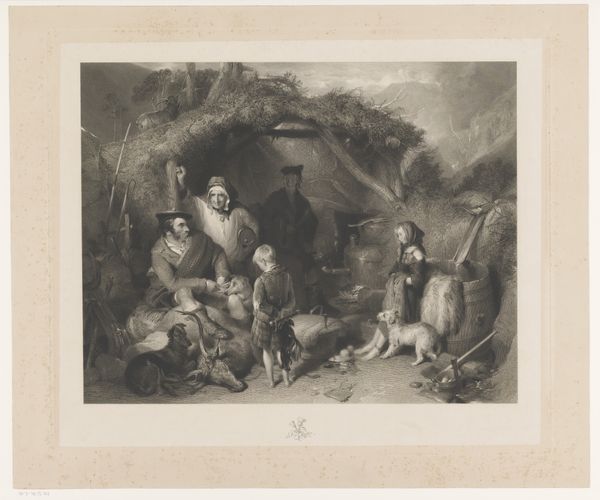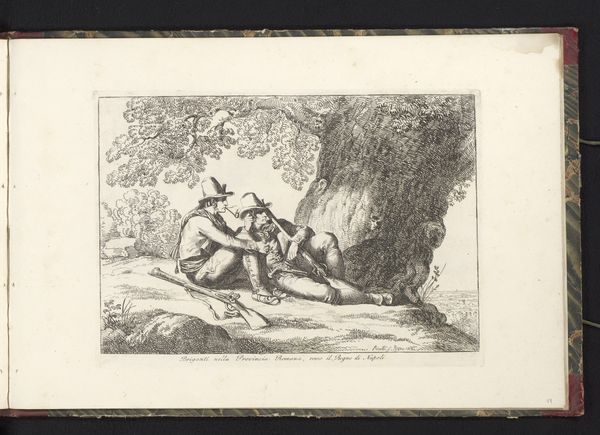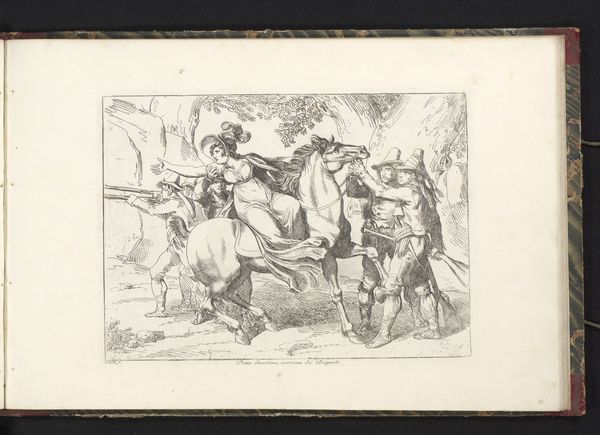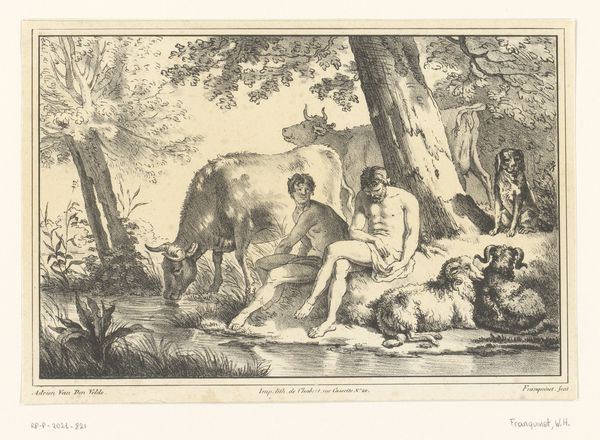
drawing, paper, engraving
#
drawing
#
figuration
#
paper
#
romanticism
#
history-painting
#
engraving
Dimensions: height 299 mm, width 440 mm
Copyright: Rijks Museum: Open Domain
Editor: This drawing by Horace Vernet from 1818, "Kneeling Woman and Man with a Wounded Soldier," engraved on paper, evokes a sombre mood. It seems like a poignant moment of tenderness amidst conflict, but I wonder what drove Vernet to create this image using these particular materials and methods? Curator: Indeed. Think about the choice of engraving – a printmaking technique allowing for reproduction. This wasn't necessarily about a unique art object, but dissemination of an image. Consider the societal appetite in 1818 for romanticized depictions of heroism and suffering, often tied to nationalism and the aftermath of Napoleonic wars. Editor: So, it's about the accessibility of the image, rather than the preciousness of the object itself? Were engravings common at the time for depicting such scenes? Curator: Exactly. Engravings allowed wider audiences to access this romanticized narrative of warfare. The materiality – paper and the reproducible nature of engraving – speaks to a specific form of cultural production and consumption in that era. It transforms emotional and violent encounters into easily circulated commodities. Think about the labor involved in creating the engraving, and how that impacts the image's meaning. Does the technique itself amplify or mute the drama portrayed? Editor: That makes me think about the process. Engraving, being so precise and laborious, does seem to sanitize some of the immediate trauma of a scene like this. Thank you! Curator: Consider how the technique of engraving impacts your understanding. Does it feel less visceral, more palatable because of the distancing effect of this material choice and the industrial method?
Comments
No comments
Be the first to comment and join the conversation on the ultimate creative platform.
